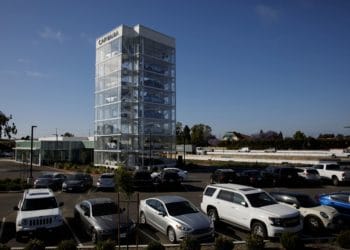Wells Fargo Offered $1B to Settle Force-Placed Auto Insurance Scandal Amid First Quarter Earnings

Wells Fargo & Co.’s first-quarter earnings were largely overshadowed by the bank’s confirmation that two regulators have offered to settle investigations into the lender’s auto insurance and mortgage practices for $1 billion.
The $1 billion figure reported last week by Reuters has been offered by the Office of the Comptroller of the Currency and the Consumer Financial Protection Bureau but has not yet been accepted by Wells Fargo.
“At this time, we are unable to predict final resolution of the CFPB/OCC matter and cannot reasonably estimate our related loss contingency,” the bank said in a public statement. “Accordingly, the preliminary financial results we report today may need to be revised to reflect additional accruals for the CFPB/OCC matter when we file our final financial statements.”
The statement only mentions the company’s issues with automotive force-placed insurance products called collateral protection insurance and mortgage interest rate lock extensions. It does not cite previously reported issues of improper refunds to customers who bought guaranteed asset protection policies.
Separately, the company reported that Wells Fargo Auto’s portfolio continues to decline in-line with its strategy. Total auto outstandings fell 18% to $49.6 billion compared with $60.4 billion the same period the year prior. Similarly, originations for the quarter were down 20% year over year to $4.4 billion.
The declines in the portfolio are less about “de-risking” the portfolio as they have been in previous quarters and have more to do with the competitive landscape of the auto finance industry more generally, executives said on the earnings call today. The company continues to project that the auto portfolio will begin to turn around in 2019.
Delinquencies 30 days or more past due grew to $1.45 billion — 12.4% higher than the same period the year prior. Likewise, charge-offs grew 24.5% year over year to $208 million during the quarter largely due to “increased severity,” the company reported.
Executives on the call noted that delinquency and loss rates are no longer driven by the effects of last year’s hurricanes, which caused the bank to issue 90-day payment delays on auto loans as consumers in Florida, Puerto Rico, and Texas recovered from the flooding. The loss rates are more reflective of the quality of the loan book now, the company said.







